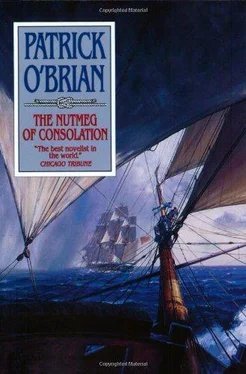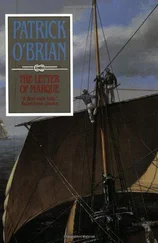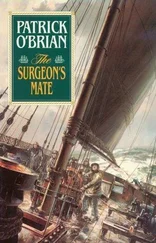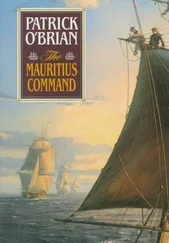Patrick O'Brian - The Nutmeg of Consolation
Здесь есть возможность читать онлайн «Patrick O'Brian - The Nutmeg of Consolation» весь текст электронной книги совершенно бесплатно (целиком полную версию без сокращений). В некоторых случаях можно слушать аудио, скачать через торрент в формате fb2 и присутствует краткое содержание. Жанр: Книги. Описание произведения, (предисловие) а так же отзывы посетителей доступны на портале библиотеки ЛибКат.
- Название:The Nutmeg of Consolation
- Автор:
- Жанр:
- Год:неизвестен
- ISBN:нет данных
- Рейтинг книги:3 / 5. Голосов: 1
-
Избранное:Добавить в избранное
- Отзывы:
-
Ваша оценка:
- 60
- 1
- 2
- 3
- 4
- 5
The Nutmeg of Consolation: краткое содержание, описание и аннотация
Предлагаем к чтению аннотацию, описание, краткое содержание или предисловие (зависит от того, что написал сам автор книги «The Nutmeg of Consolation»). Если вы не нашли необходимую информацию о книге — напишите в комментариях, мы постараемся отыскать её.
The Nutmeg of Consolation — читать онлайн бесплатно полную книгу (весь текст) целиком
Ниже представлен текст книги, разбитый по страницам. Система сохранения места последней прочитанной страницы, позволяет с удобством читать онлайн бесплатно книгу «The Nutmeg of Consolation», без необходимости каждый раз заново искать на чём Вы остановились. Поставьте закладку, и сможете в любой момент перейти на страницу, на которой закончили чтение.
Интервал:
Закладка:
'Oh Governor,' said Stephen, turning as the far door opened and Raffles came in with a mission accomplished look on his face, 'I am so glad you are come just at this moment, to hear me crush my - I will not say opponent but rather interlocutor- with a singularly apt quotation that has just floated into my mind. Mr Sowerby here maintains that the Irish have always been poor and ignorant. I maintain that this has not always been the case and I support my statement not out of any annals such as those of the Four Masters which might be looked upon as biased but out of a purely English authority, that of your own Venerable Bede himself, God be with him. "In the year 664," he says in his Ecclesiastical History, "a sudden pestilence" - which in Irish we call the Buidhe Connail, the Yellow Plague - "depopulated the southern coasts of England, and soon afterwards, extending into the province of the Northumbrians, ravaged the country far and near, and destroyed a great multitude of men... It did no less harm in the island of Ireland, where many of the nobility and of the lower ranks of the English nation..." He coughed and went on, "Where many of the nobility and of the lower ranks of the English nation were, at the time, studying theology or leading monastic lives, the Irishmen supplying them with food, and furnishing them with books and their teaching gratis pro Deo."
Jack had been watching him closely, and with great anxiety; he knew that Stephen was furiously angry and he knew what Stephen was capable of. Now as his friend sat down, his hands no longer trembling, Jack cried 'Well quoted, Doctor! Well quoted upon my honour. I could not have done half so well, without it had been the Articles of War.'
'It was indeed a knock-down blow, my dear Maturin,' said Raffles. 'One of those replies one usually makes the day after the event. What have you to say, Mr Sowerby?'
Mr Sowerby had only to say that he meant no national reflexion, was unaware that the gentleman came from Ireland, begged his pardon for any involuntary offence, and took advantage of the sailors' departure to make his bow.
'I hope all went well?' said Stephen.
'Oh yes,' said Raffles. 'It is almost the end of Ramadan, you know, and the stricter Muslims grow fractious by the end of the day, particularly such a burning day as this: tomorrow they will be their usual amiable selves, greasy with mutton-fat. But I am sorry you had to endure that fellow. It must have seemed very long.'
'The gentleman's second name is Prolixity,' said Stephen.
They sorted their orchids in silence for a while and then in a hesitant voice Raffles said, 'You are no doubt usually surrounded with gentlemen and fellow-officers - people who know your origin and your worth. I wonder whether you are aware how widespread these illiberal opinions are? Poverty, illiteracy, Popery and so on? And the very strong dislike of those in any way connected with the rising? If you have not mixed with the kind of people who are in authority in New South Wales, I am afraid you may be deeply shocked, should you stay any length of time.'
'I did have a passing glimpse of them in the time of that unfortunate man William Bligh; we touched at Sydney Cove for some essential stores in the Leopard. The people were in a state of insurrection, but from what little I saw of the officers they seemed to me, with some exceptions, a parcel of beggars on horseback, with all the froward arrogance and vanity the term implies.'
'Alas, there has been no improvement since then.'
'It is an odd thing,' said Stephen, after a pause, 'that when the American colonists broke away from England, a great many English supported them; even James Boswell did so, to my astonishment, in opposition to Dr Johnson. Yet when the Irish tried to do the same, no voice, as far as I know, was heard in their favour.
It is true that Johnson, speaking of the infamous union with Kevin FitzGerald, said "Do not make an union with us, sir. We should unite with you, only to rob you"; but that was long before the rising.'
'It is a standing wonder to me that Johnson should have borne with that scrub Boswell, and that the scrub should have written such a capital book. I remember a passage where the Doctor grew outrageous about the revolting colonials and called them "a race of convicts, that ought to be thankful for anything we allow them short of hanging", and another where he said "I am willing to love all mankind, except an American" and called them "Rascals - robbers - pirates", exclaiming he'd "burn and destroy them". But then the intrepid Miss Seward said "Sir, this is an instance that we are always the most violent against those whom we have injured." Perhaps the same violence is now in action against the Irish. Will you join me in a bowl of punch?'
'I believe not, Raffles; though I am very sensible of your kindness. Indeed, as soon as we have sorted through this heap I shall bid you good night. It has been a somewhat wearing day.'
As he passed through the corridor where the secretaries lived he caught the heavy scent of opium, a drug he had used for many years in the more convenient form of laudanum, taking it sometimes for pleasure and relaxation, sometimes for the relief of pain, but above all for dealing with emotional distress. He had abandoned it on his reconciliation with Diana, doing so for many reasons, one of them being his belief that a man ought to manage without bottled fortitude. Plain fortitude from within, that was the cry; but as he caught that familiar smell it occurred to him that he might well have been tempted to break his resolution if he had happened to have a pint bottle at hand: tonight was going to call for an uncommon constancy of mind. For one thing he had been exceedingly angry, which was no help to sleep at all. For another it was likely that his more loquacious self, in spite of all the discipline he could impose upon it, would, in moments of distraction or near-sleep, certainly torment him with observations on his new poverty -his inability to oblige Diana, to endow a chair of osteology, to do the handsome thing on occasion, to maintain some of the annuities he had promised, to undertake remote voyages in the Surprise when peace should come at last. And if he slept at all, the waking would be worse, with all these aspects invading his mind afresh; accompanied, no doubt, by others he had not yet perceived.
The event proved him totally wrong in both instances. Sleep came at once, jumbling the last words of his paternoster, a deep sleep in which he lay totally relaxed until in the first hint of light he became aware of the luxury of lying there in a state of almost disembodied ease and well-being; then of the delighted recollection that they had a ship; and then of a massive form between him and the faint source of light and of Jack's rumbling whisper asking him if he were awake.
'What if I am, brother?' he replied.
'Why, then,' said Jack, his deep voice filling the room as usual, 'Bonden has as it were found a little green skiff, and I thought you might like to come with me and look at the raised Dutch sloop whose name I never can recall.'
'By all means,' said Stephen, getting out of bed and flinging on his clothes.
'Of course, I suppose you could wash and shave later,' said Jack. 'We are to breakfast with the Governor, you recall.'
'Aye? Well, I dare say we are, but a wig covers a multitude of sins.'
At this time the citadel of Batavia, which contained the Governor's residence, was in a somewhat chaotic state, the last Dutch administration having tried to deal with the appalling mortality from fever by doing away with many of the moats, canals and water-defences, and by temporarily diverting others, with the result that Stephen had but to step from his window into the green skiff, and with Bonden's helping hand to settle himself on a borrowed cushion in the stern, where Jack joined him. They pulled gently along this narrow winding domestic waterway for a hundred yards or so, once looking straight into an astonished kitchen, once into a room from which they averted their blushing faces, then out through the ruined watergate, along the canal through the shallows, running gently with the tide, and so into the open bay. The growing day was perfectly calm, and the few large fishing-proas that were in motion paddled through the mist, singing gently.
Читать дальшеИнтервал:
Закладка:
Похожие книги на «The Nutmeg of Consolation»
Представляем Вашему вниманию похожие книги на «The Nutmeg of Consolation» списком для выбора. Мы отобрали схожую по названию и смыслу литературу в надежде предоставить читателям больше вариантов отыскать новые, интересные, ещё непрочитанные произведения.
Обсуждение, отзывы о книге «The Nutmeg of Consolation» и просто собственные мнения читателей. Оставьте ваши комментарии, напишите, что Вы думаете о произведении, его смысле или главных героях. Укажите что конкретно понравилось, а что нет, и почему Вы так считаете.












